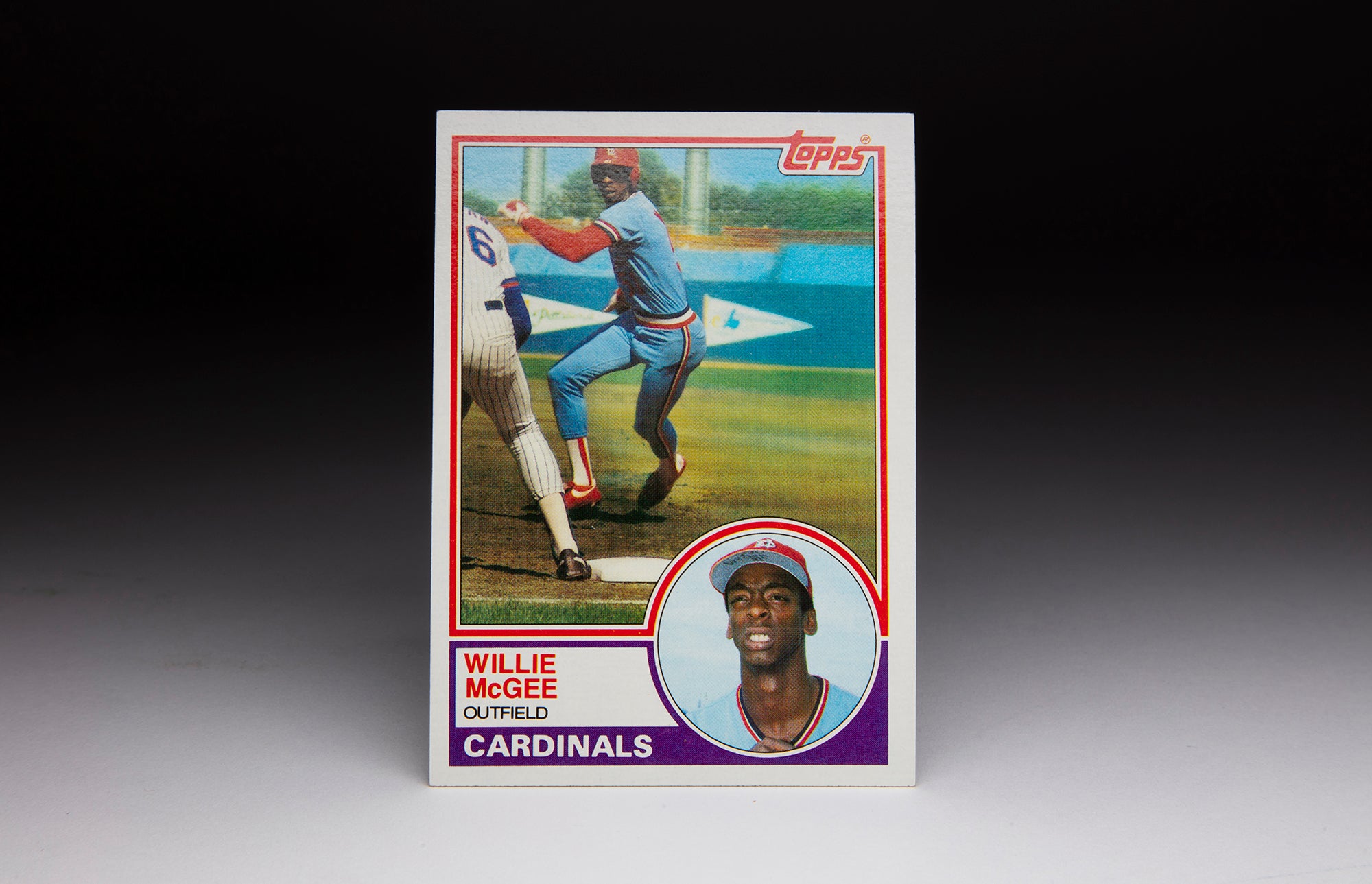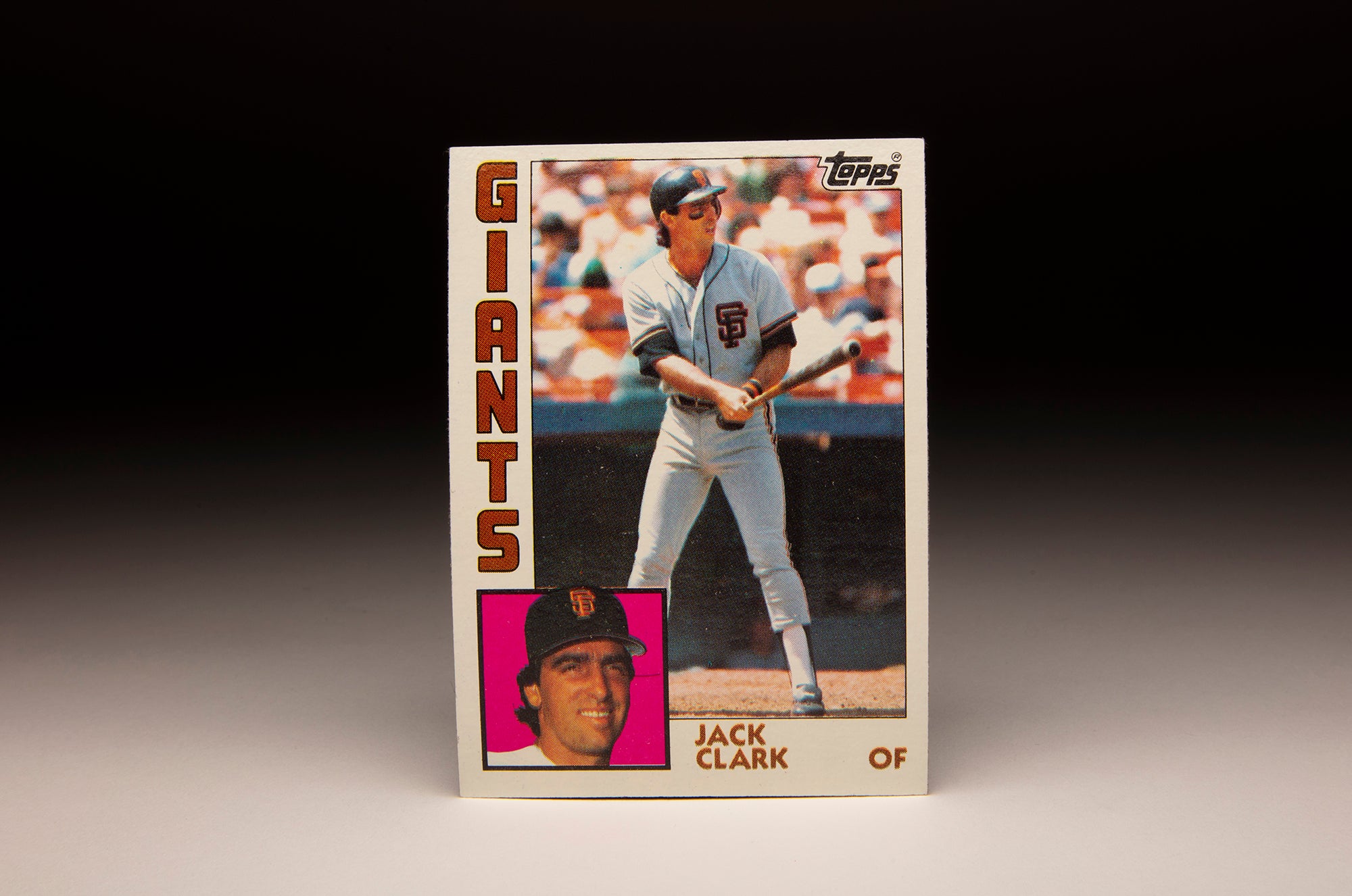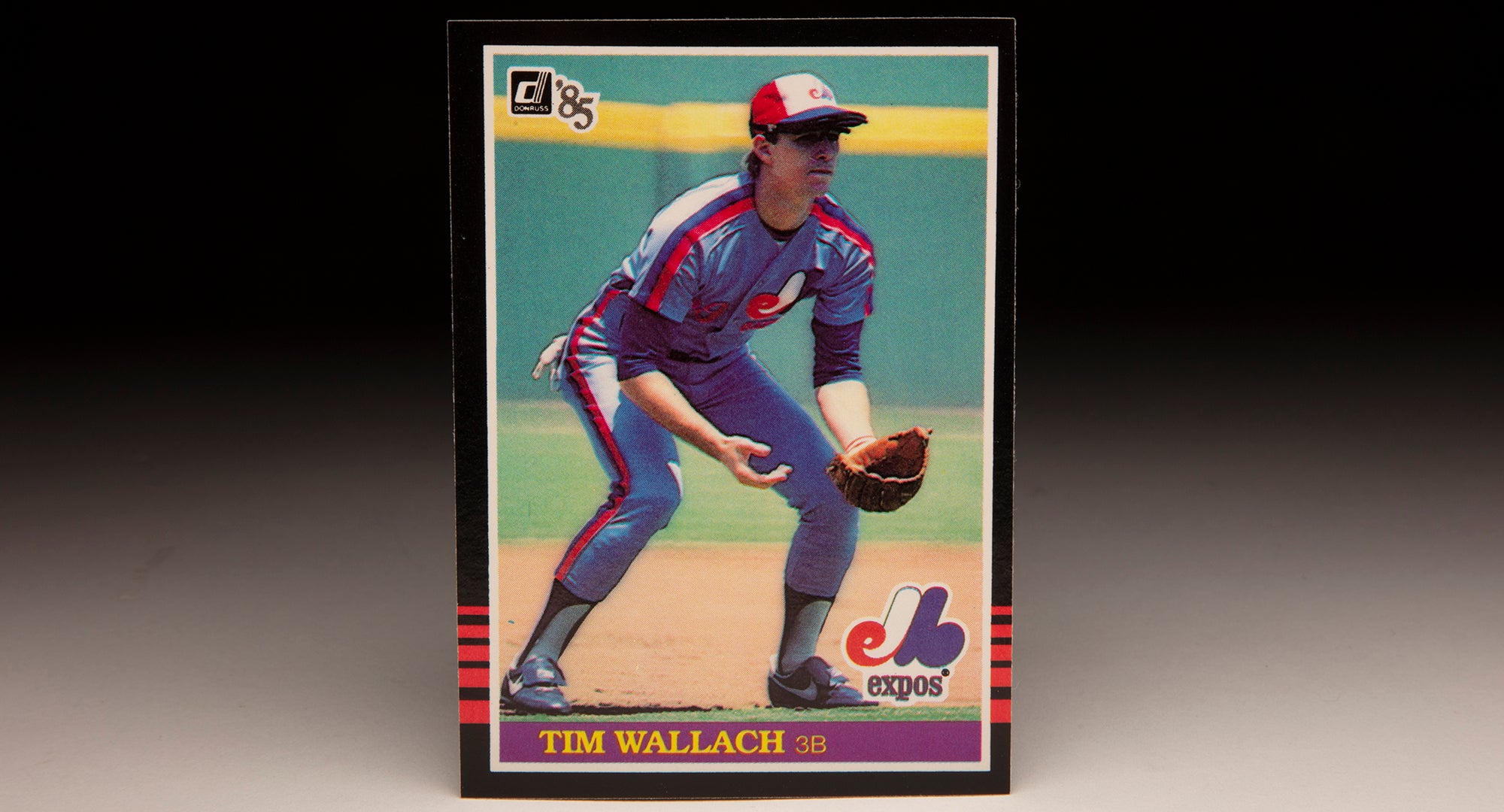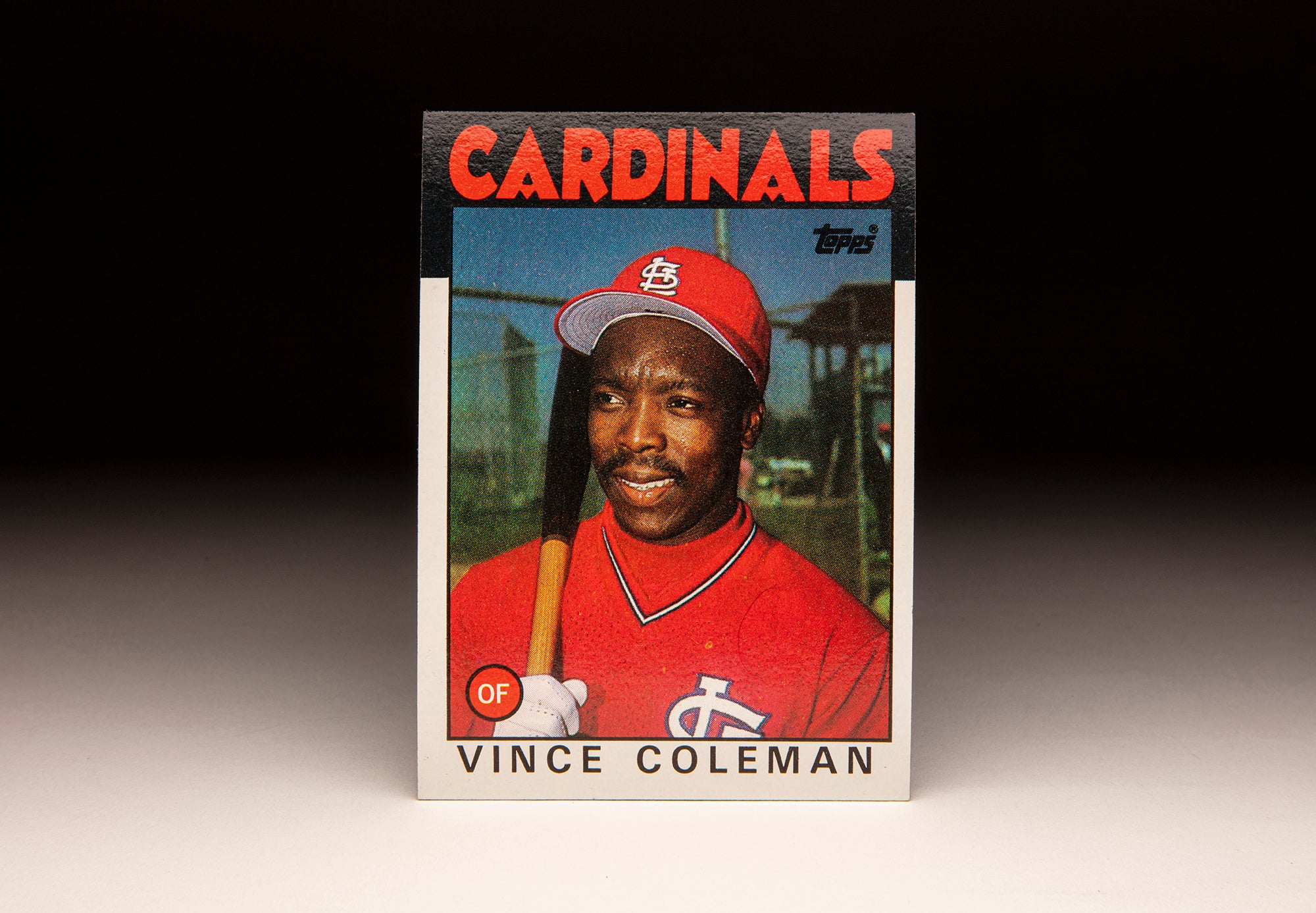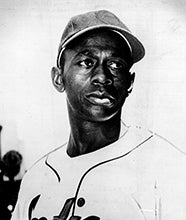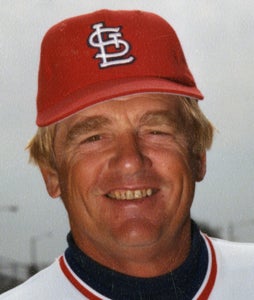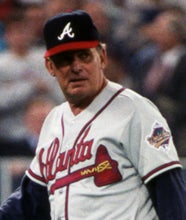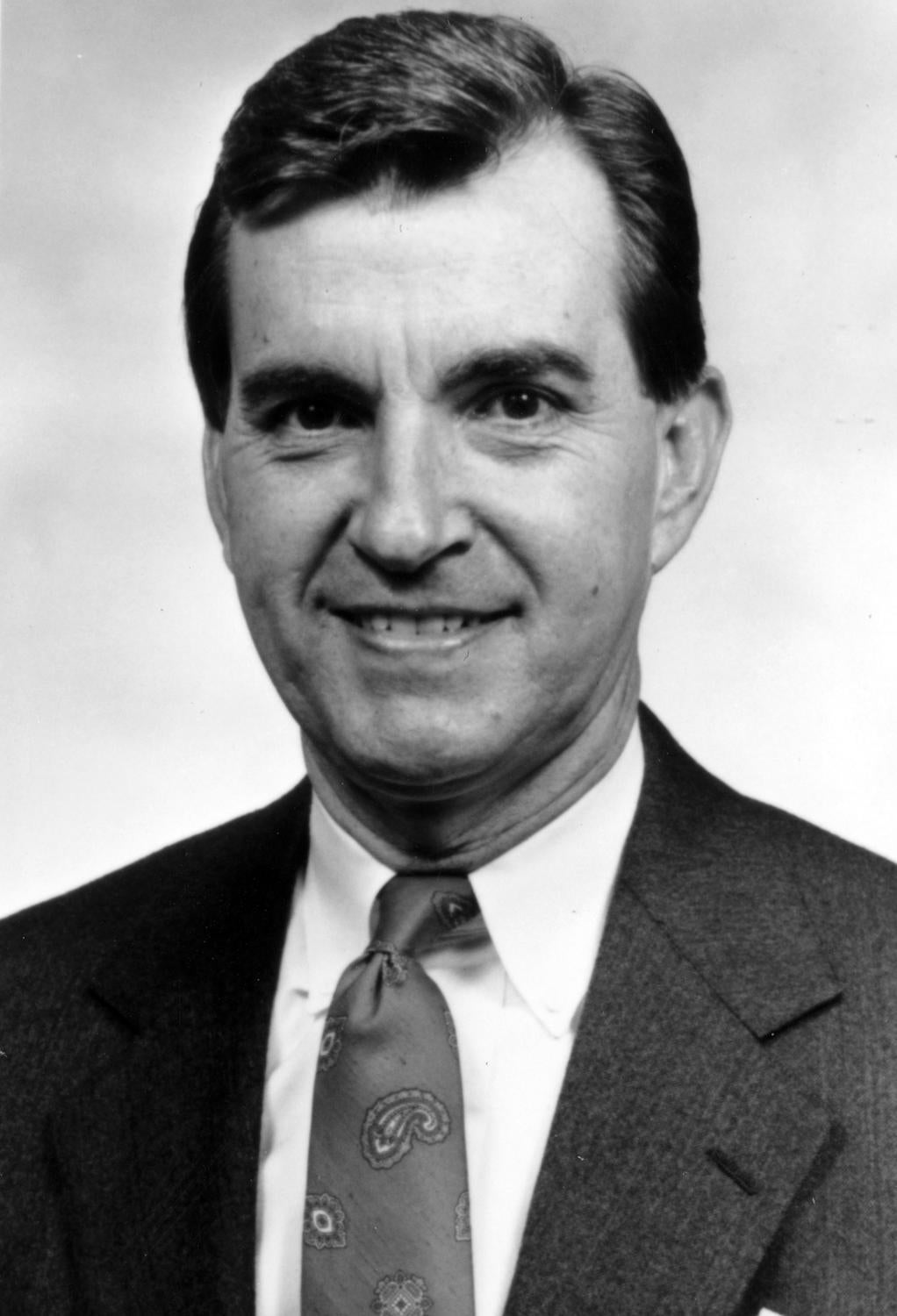- Home
- Our Stories
- #CardCorner: 1986 Topps Terry Pendleton
#CardCorner: 1986 Topps Terry Pendleton
If World Series rings were awarded on merit, Terry Pendleton would have more than could fit on one hand.
The cruel reality of baseball left Pendleton’s teams 0-for-5 in the Fall Classic. But none of those losses diminished Pendleton’s stature as one of the game’s most respected players.
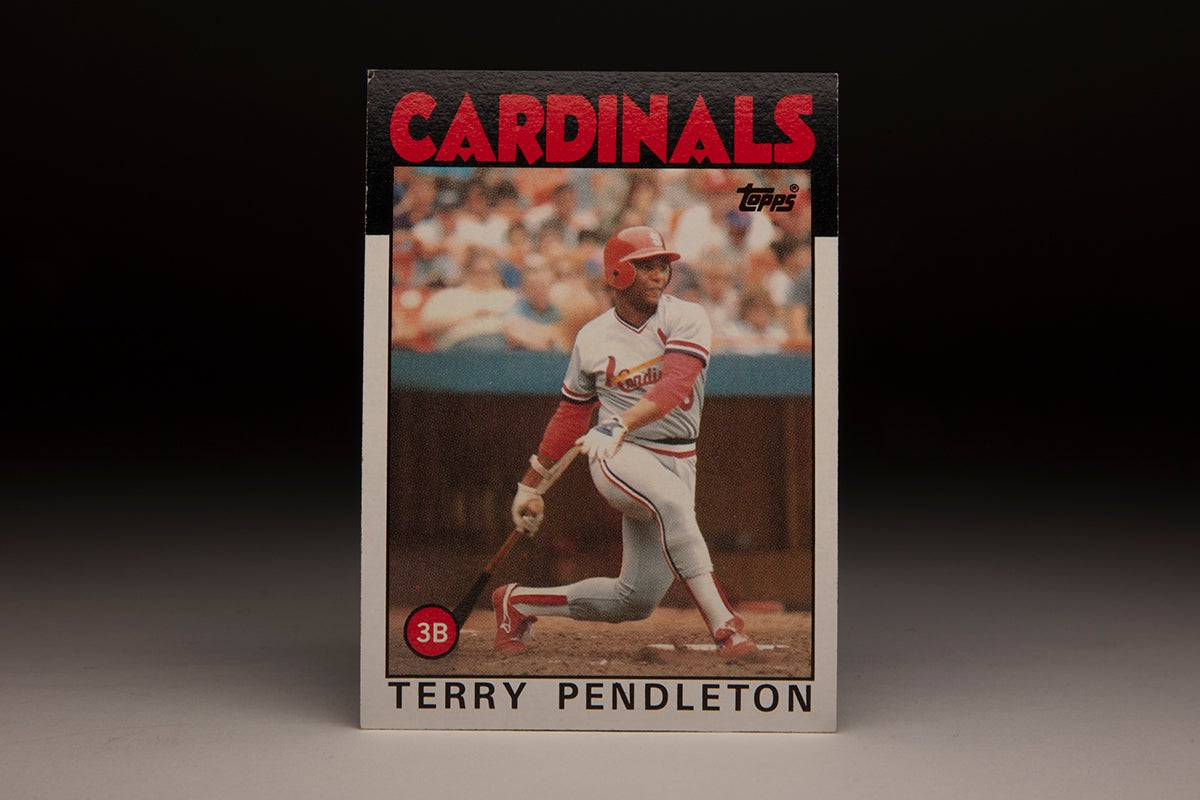
Born July 16, 1960, in Los Angeles, Pendleton’s father, Alfred, was a truck driver who batted against Satchel Paige in 1938 when Paige’s Negro Leagues team was playing an exhibition game.
“The dude was swift,” Pendleton told the Los Angeles Times in 1988 when his son was in his fifth season with the St. Louis Cardinals. “He had a sidearm (delivery) that looked like it was coming from third base. I closed my eyes, I think. I did manage to get a foul. Then I said to myself: ‘I’m not getting that close again.’”
Pendleton’s family moved to Oxnard in 1969, and young Terry played organized baseball for the first time. He did not get a hit all season.
“I was the worst,” Pendleton told the Times. “I was the kid who played right field for two innings. That was me.”
But after working relentlessly on his skills, Pendleton made the league all-star team the following year. He was soon headed to Channel Islands High School, where once again he found himself on the bench in his first season. By his senior year, however, he was batting .500.
As a stocky 5-foot-7 infielder (he would eventually grow two more inches), however, Pendleton attracted little interest from colleges or the pros.
“I kept trying to get people to come look at him in high school,” Channel Islands coach Don Cardinal told the Camarillo (Calif.) Star in 1985. “Terry was such a worker – he never wanted to quit.”
Pendleton also starred at basketball for Channel Islands – “That’s actually my real love,” Pendleton told the Star in 1985 – and enrolled at Oxnard College after graduation, signing up to play for the first baseball team in the school’s history. After two years with the Condors, Pendleton transferred to Fresno State, which offered him a partial scholarship. It was in Fresno where Pendleton seriously committed to switch-hitting.

In 1982, Cardinals scout Steve Flores noticed Pendleton and recommended the team take a flyer on him. The Cardinals selected Pendleton in the seventh round of the 1982 MLB Draft and sent him to Johnson City of the Appalachian League.
Pendleton hit .320 with 13 steals in 43 games for Johnson City before earning a late-season promotion to Class A St. Petersburg of the Florida State League. The Cardinals assigned Pendleton to Double-A Arkansas of the Texas League in 1983, but Pendleton appeared in only 48 games that year while suffering through two broken wrists. But Pendleton was still named to the Texas League All-Star team.
In 1984, the Cardinals moved Pendleton to third base – after he had spent his first two pro seasons as a second baseman – and promoted him to Triple-A Louisville. After impressing Cardinals management in the spring, Pendleton was hitting .297 with 23 doubles in 91 games when the Cardinals brought him to St. Louis in mid-July after Willie McGee was sidelined with a hamstring injury.
“It’s hit me that I’m in the big leagues, but in a way it hasn’t,” Pendleton told the St. Louis Post-Dispatch. “I mean, I’m standing here in Busch Stadium, which I’ve heard so much about all these years. And I’m standing here with all these players I’ve heard so much about.
“I was a Dodger fan for years and Dusty Baker was everything to me. So I walk into the hotel when I get here and the first guy I see is Dusty Baker. This is all kind of wild.”
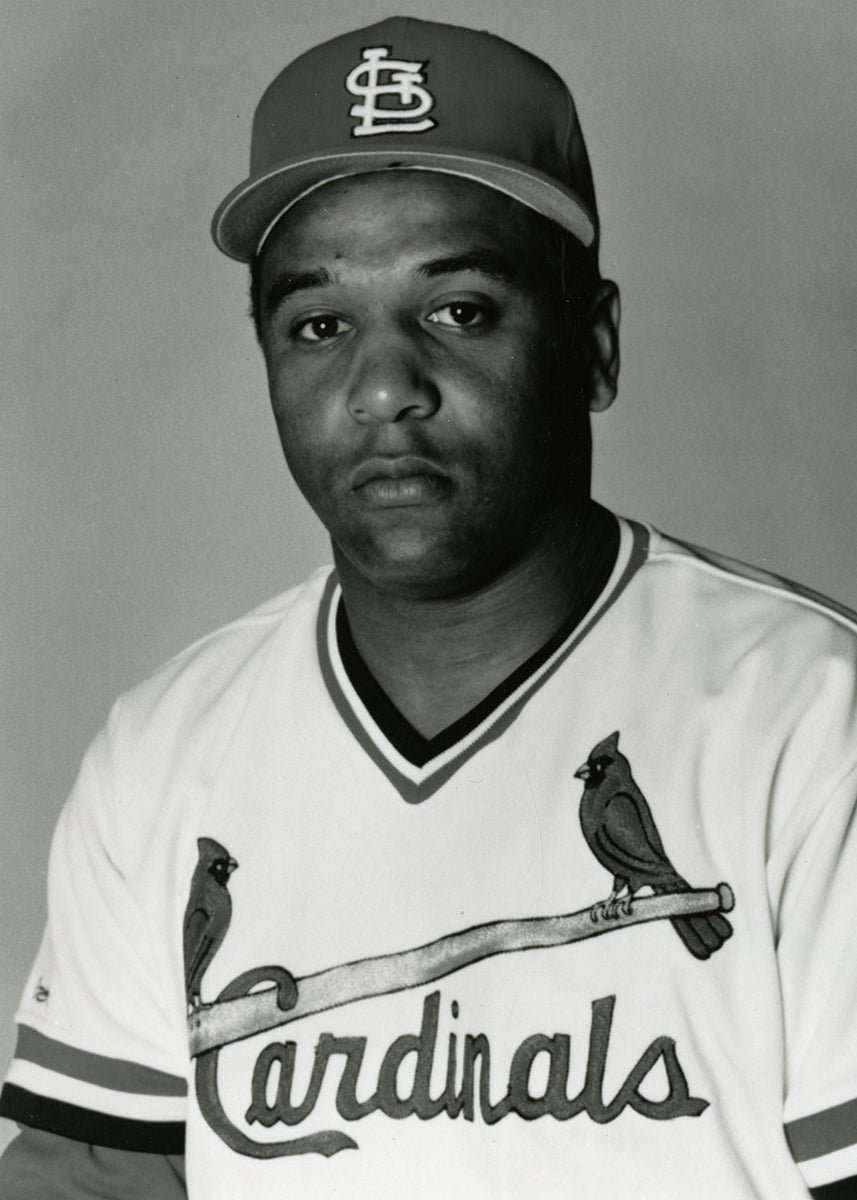
Pendleton made his big league debut on July 18, 1984, against the Giants, who employed Baker that year as an outfielder. He recorded three hits in that first game and hit safely in 13 of his first 14 contests, finishing that stretch with a .482 batting average.
“He’s the type of kid,” said Cardinals first base coach Nick Leyva, who managed Pendleton in Arkansas in 1983, “you call a gamer.”
Pendleton finished his rookie season with a .324 batting average, 20 stolen bases and 37 runs scored in 67 games, earning a seventh-place finish in the National League Rookie of the Year voting. More importantly, he stabilized a position that had been in flux for the Cardinals.
In 1985, Pendleton had a lock on the starting third base job from the start of Spring Training. And despite a 3-for-28 stretch at the plate to start the exhibition season, Pendleton was in the Opening Day lineup. His batting average never reached the .300 mark at any point in the season but his defense kept him in the lineup as he finished second among NL third basemen with 361 assists while hitting .240 with 69 RBI in 149 games.
“I just want to stay healthy and keep trying to play better,” Pendleton told the Camarillo (Calif.) Star as he struggled to find his batting stroke during that season.
The Cardinals won the NL East and advanced to the NLCS vs. the Dodgers, where Pendleton drove in four runs as St. Louis won the series in six games. Pendleton's picture appeared in newspapers from coast to coast when he helped carry Vince Coleman from the field after Coleman was injured by an automatic tarp roller prior to Game 4.
In the World Series against the Royals, Pendleton hit .261 with three RBI – all of which came in a 4-2 win in Game 2. But after taking a three-games-to-one lead in the series, St. Louis fell in seven games.
Pendleton again struggled at the plate in 1986, hitting .239 with just one homer in 159 games. But he had the support of manager Whitey Herzog, who appreciated his defense (NL-leading totals in putouts with 133 and assists with 371) and baserunning (24 steals).
So despite persistent rumors that the Cardinals were going to send Pendleton to the Expos in exchange for All-Star third baseman Tim Wallach, Pendleton made his third straight Opening Day start in 1987. He responded with his best full season to that point, hitting .286 with 12 homers and 96 RBI while moving up and down the lineup throughout the season. The Cardinals won the NL East again and defeated the Giants in seven games in the NLCS. But in Game 7, Pendleton suffered a pulled muscle on the left side of his ribcage. The injury prevented him from playing the field or hitting right-handed.
But with slugging first baseman Jack Clark unavailable in the World Series due to injury, Herzog chose to keep Pendleton on the roster and use him as a designated hitter in the games played in Minnesota.
Clark (35 home runs) and Pendleton (12 home runs) represented exactly half of the 94 home runs the Cardinals totaled in 1987.
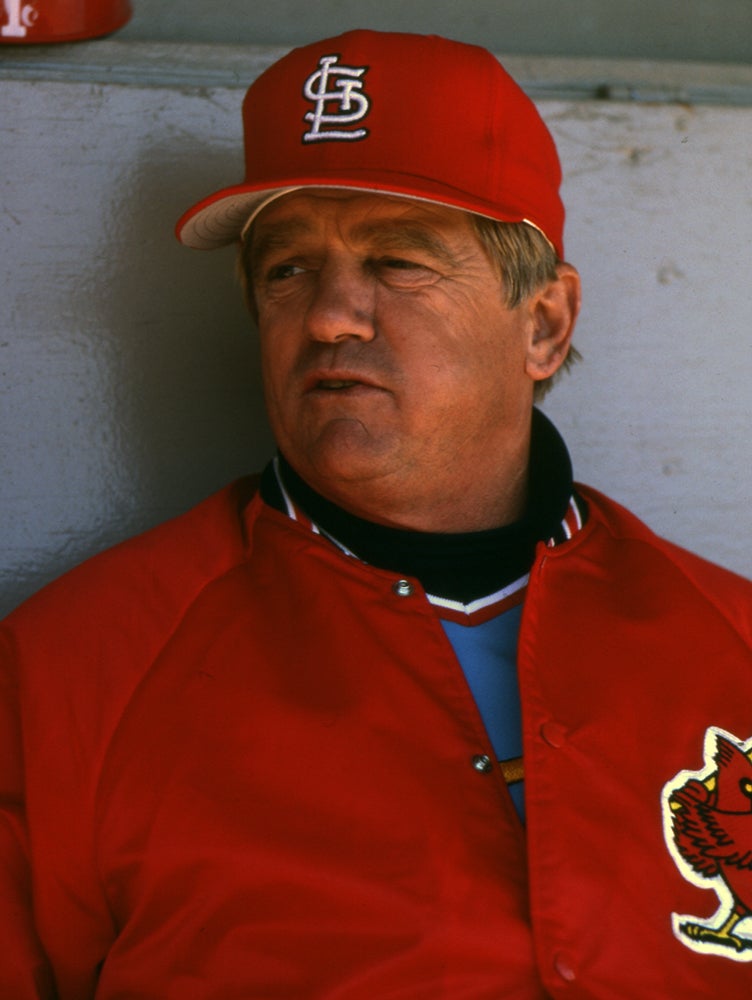
“Losing Terry is a big blow, both offensively and defensively,” Cardinals pitcher John Tudor told the Post-Dispatch.
Pendleton, meanwhile, was committed to making the best of the situation.
“My dad always said there were going to be temporary setbacks, but this one is going to last for a while,” Pendleton said on the eve of Game 1. “You come this far and work so hard since Spring Training and you’re not able to do all you can do.”
Pendleton wound up playing in three games in the World Series, starting as the designated hitter in Games 2 and 6 when right-hander Bert Blyleven took the mound for the Twins and pinch-hitting in Game 3. But he sat out Games 1 and 7 when lefty Frank Viola was starting for Minnesota and finished the series with three hits and two runs scored in seven at-bats. The Cardinals lost the series in seven games.
Eligible for arbitration for the first time heading into the 1988 season, Pendleton and the Cardinals agreed on a one-year deal worth a reported $660,000. But Pendleton battled hamstring issues all year, initially suffering the injury May 14 in a game against the Braves that went 19 innings and eventually missing most of the month of June. He finished the season batting .253 with 53 RBI in 110 games.
Pendleton and the Cardinals could not agree on a 1990 contract, and the two sides went to arbitration – with Pendleton winning a salary of $1.875 million, which was at the time the second-biggest win in arbitration history.
“Whitey (Herzog) knows I hit line drives and play good defense,” Pendleton told the Associated Press. “And for this team, that’s what he wants.”
But more hamstring injuries hobbled Pendleton in 1990, and Herzog resigned in July with the Cardinals at 33-47. Pendleton finished the year hitting .230 in 121 games and became a free agent as St. Louis turned to young Todd Zeile at third base.
Pendleton quickly signed a four-year, $10.2 million contract with Atlanta, becoming the highest-paid player in Braves history.
“I wanted to come to a club where they’re putting an honest effort to put a winner on the field,” Pendleton told the Atlanta Constitution. “I show up every day to win.”

The Braves had finished last in the NL West in 1990, and many saw the signing of Pendleton as an overreach. But it turned out to be one of the best deals in franchise history.
Pendleton opened the season in the sixth spot in the batting order but moved into the No. 3 hole by June en route to an NL-best .319 batting average. He also led the league in hits (187) and total bases (303) while notching 34 doubles, 22 homers and 86 RBI. He also led NL third basemen in assists for the fourth time as the Braves won the NL West with a young pitching staff that included future Hall of Famers Tom Glavine and John Smoltz.
It was Pendleton, however, who powered the offense.
Pendleton had five hits in the Braves’ win over the Pirates in the NLCS, including a first-inning infield single in Game 7 that resulted in a run when Pendleton scored on Brian Hunter’s home run. That blast gave the Braves a 3-0 lead that turned into a 4-0 win when Smoltz pitched a six-hit shutout.
In the World Series against the Twins, Pendleton hit .367 with two home runs, including a third-inning home run in Game 4 off Jack Morris that erased a 1-0 Minnesota lead and helped the Braves win 3-2.
The series went to a seventh game, and Pendleton nearly became the hero when he doubled off Morris in the eighth inning of a scoreless classic – a hit that was seemingly going to score the speedy Lonnie Smith from first base. But Smith was apparently decoyed by Twins’ second baseman Chuck Knoblauch into hesitating at second base and only got to third on the play. Morris then pitched out of the jam to keep the Braves off the scoreboard, and Minnesota won the game in the 10th inning.
Following the season, Pendleton was named the NL Most Valuable Player, edging Pittsburgh’s Barry Bonds – the 1990 MVP – by 15 points.
“This award is going to be and it’s in my name, but my teammates, (Braves manager) Bobby Cox and (Braves general manager) John Schuerholz and the rest of the Braves deserve a lot of credit for this,” Pendleton told the Associated Press. “If we had finished second in the National League, I don’t think I’d be standing here.”
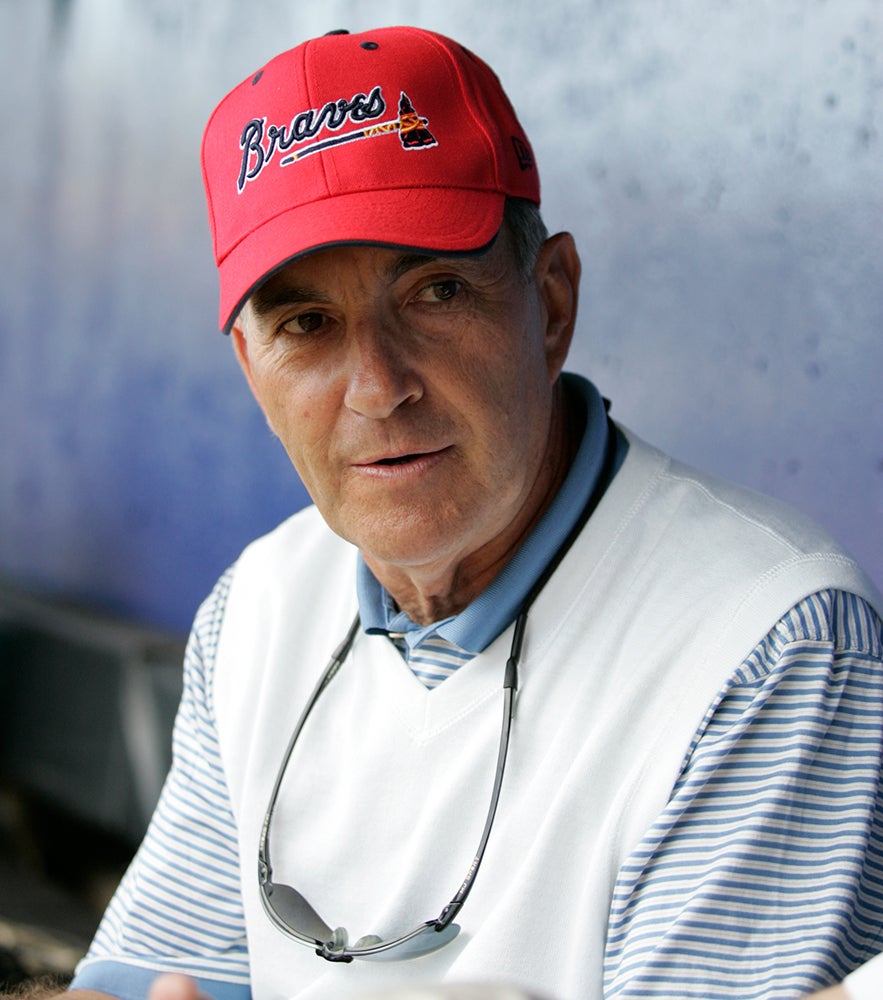
Pendleton had a similar stellar season in 1992, leading the NL with 199 hits while hitting .311 with 21 homers and 105 RBI. Pendleton was also named to the All-Star Game for the first time, starting at third base for the National League.
Once again, the Braves met the Pirates in the NLCS and defeated Pittsburgh in seven games, this time rallying for three runs in the bottom of the ninth of Game 7 to clinch the victory. Pendleton sparked that rally with a leadoff double against Pirates ace Doug Drabek, who had allowed just five hits and no runs to that point.
The Braves faced the Blue Jays in the World Series, and Pendleton recorded six hits as Toronto won in six games. For Pendleton, it was the fourth time in eight seasons that he was on the losing end of a World Series matchup.
“It’s my fault,” Pendleton told Knight-Ridder Newspapers during the World Series. “I’m not hitting. And when I don’t hit, we don’t win.”
But Pendleton’s overall effect on the franchise was not lost to anyone in Atlanta.
“We win a lot of games when Terry Pendleton plays big games,” Schuerholz said during the 1992 World Series. “He’s very important to our success.”
Pendleton and the Braves appeared headed to a third straight World Series in 1993 but lost to Philadelphia in the NLCS after winning 104 games during the regular season. Pendleton hit .272 with 17 homers and 84 RBI in 161 games and then batted .346 with five RBI against the Phillies.

In 1994, back problems and the work stoppage limited Pendleton to just 77 games and a .252 batting average. With his contract expiring and Chipper Jones ready to take over third base, Pendleton entered the free agent market when baseball resumed in the spring of 1995. On April 7, he signed with the Marlins on a one-year deal with an option year worth a reported $1.5 million.
“Florida showed interest in me, wanted me, and they came after me,” Pendleton told the AP.
Pendleton gave the Marlins the solid play they were looking for by hitting .290 with 14 homers and 78 RBI in 133 games. Florida picked up his option for 1996, and Pendleton was hitting .251 through 111 games when the Marlins traded him back to the Braves on Aug. 13, 1996, in exchange for outfielder Roosevelt Brown.
Stepping back into the Atlanta lineup at third base as Jones moved to shortstop to replace the injured Jeff Blauser, Pendleton helped the Braves – who had won the World Series title in 1995 when Pendleton was with the Marlins – return to the postseason. But in the playoffs, the Braves opted to go with Blauser at shortstop and returned Jones to third base, leaving Pendleton with a bench role.
Atlanta advanced to the World Series again and won the first two games against the Yankees before dropping four straight – once again denying Pendleton a ring.
“If you go strictly by statistics, then, no, (the trade for Pendleton) hasn’t worked out as well as we had hoped,” Schuerholz told the Louisville Courier-Journal in reference to Pendleton’s .204 batting average with the Braves after he returned to Atlanta. “But he’s a warrior. He’s a presence. He’s a professional. He’s very intense every day.
“He’s the player who helped get all this started.”
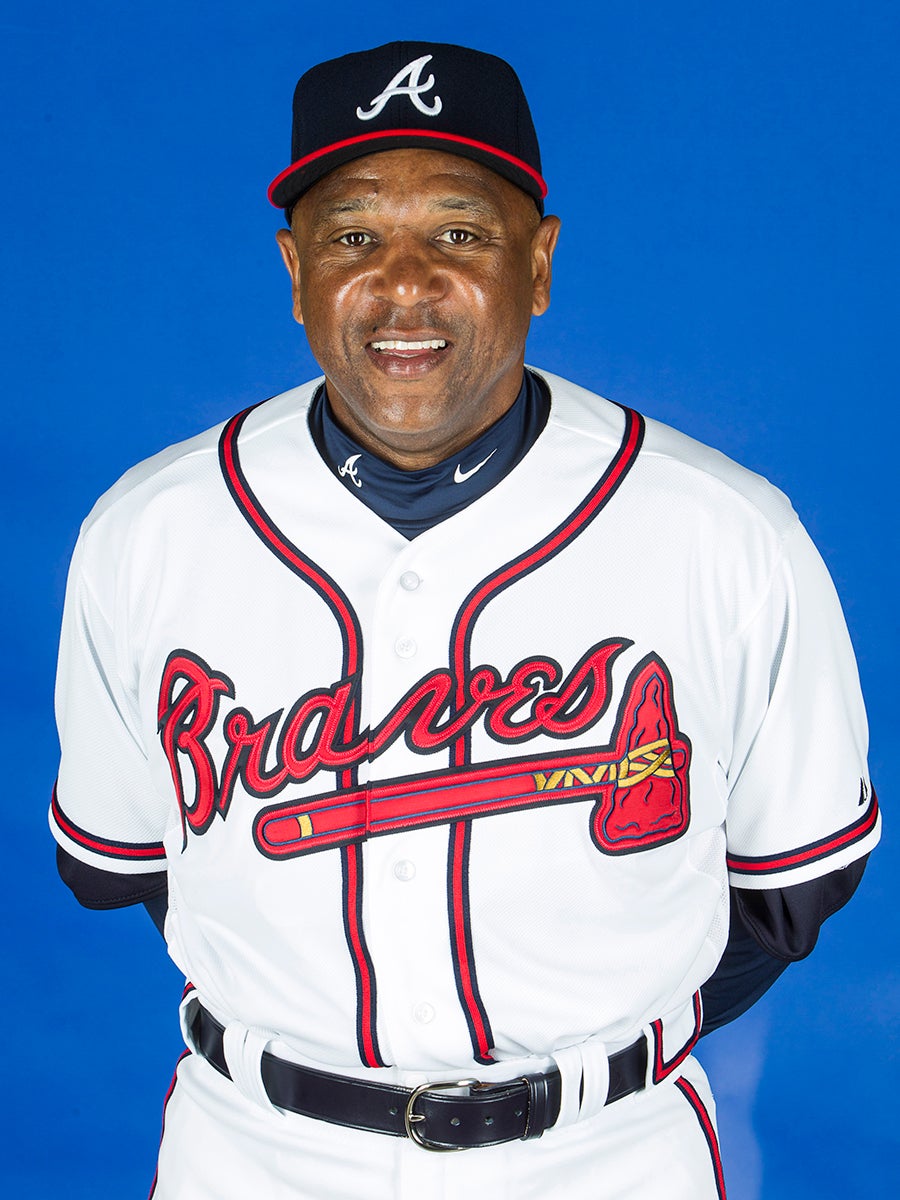
With his career winding down, Pendleton signed with the Reds for the 1997 season but was released midway through the campaign after hitting .248 in 50 games. He returned with the Royals in 1998 and hit .257 in 79 games in his final big league appearances.
On Dec. 12, 1998, Pendleton announced his retirement.
“I think it’s time for me to be home with my family,” Pendleton told the AP.
But Pendleton didn’t stay home for long. In 2002, he became the Braves hitting coach – a role he maintained through the 2010 campaign before becoming the team’s first base coach through the 2016 season. He then transitioned to the team’s bench coach role in 2017 in the first full season of manager Brian Snitker.
Over 15 big league seasons as a player, Pendleton hit .270 with 1,897 hits, 356 doubles, 140 home runs, 127 steals and three Gold Glove Awards. He is the only player whose career began in the Live Ball Era (post 1919) to appear in at least five AL vs. NL World Series and not be on the winning side once. Fred Merkle and Hall of Famer Rube Marquard are the only other players in AL/NL history to go 0-for-5 in Fall Classic play.
“I’ve been through it all – the ups and the downs,” Pendleton said early in his career. “But I’m just going to keep trying my hardest.”
Craig Muder is the director of communications for the National Baseball Hall of Fame and Museum

